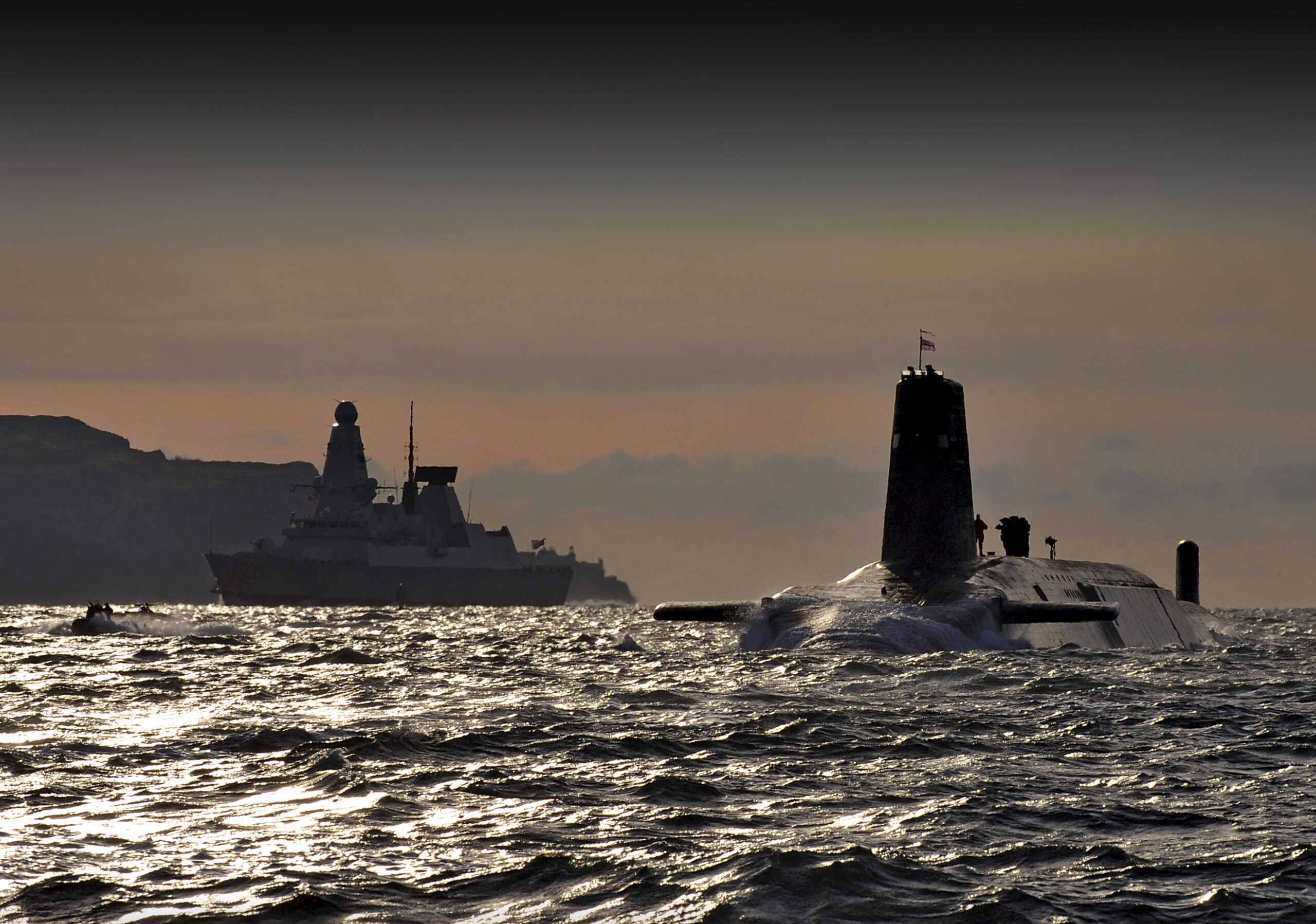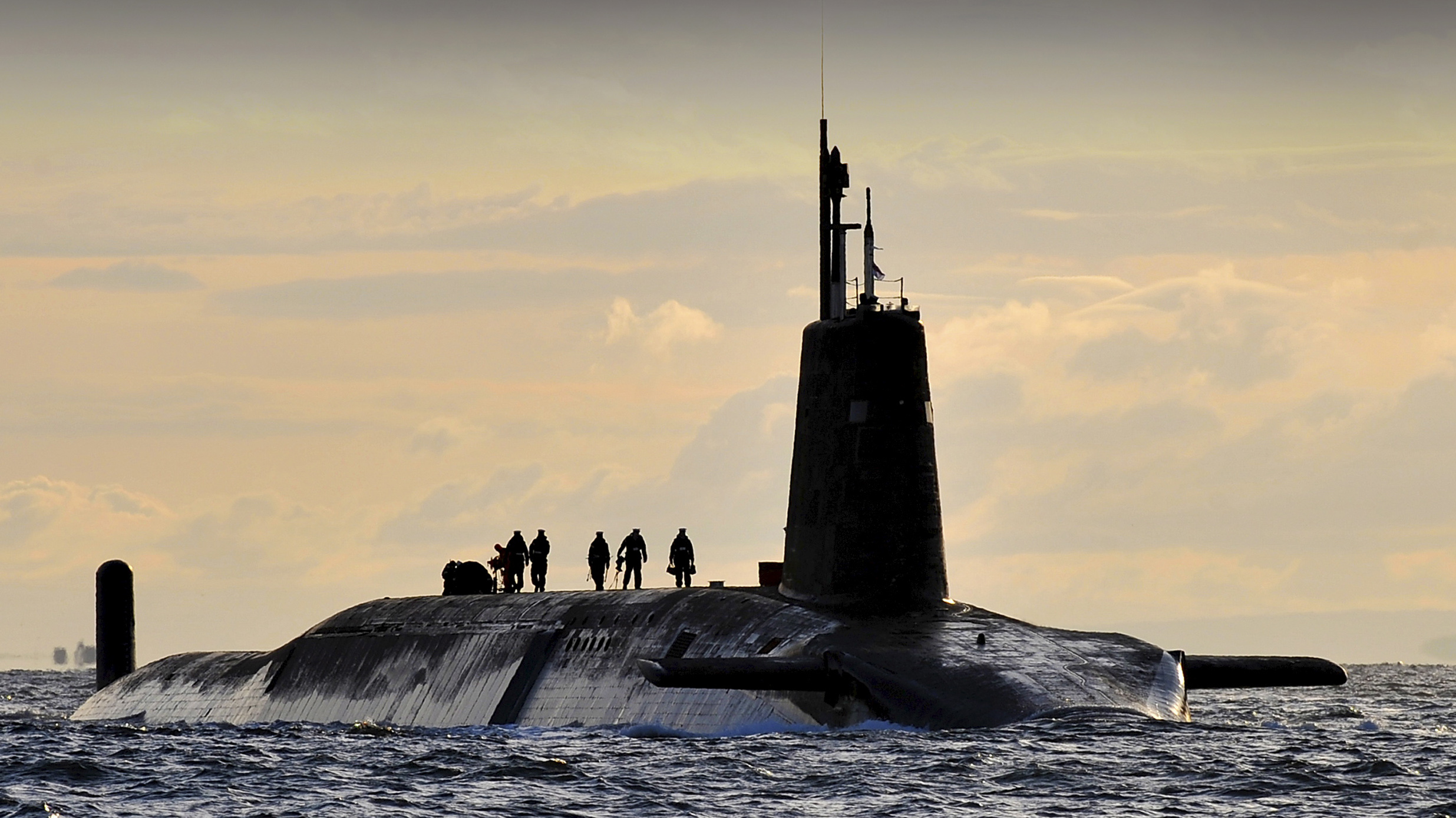An affair between two U.K. Royal Navy officers serving on nuclear submarines threatened the security of the country’s nuclear deterrent, according to the judge at a military court. The two individuals have both been formally discharged from the navy and have received suspended prison sentences.
Details of the 2020 incident were made public following a recent court-martial. The two officers, Lt. Sophie Brook and Lt. Cdr. Nicholas Stone, were serving aboard the Vanguard class ballistic missile submarine HMS Victorious and the Astute class nuclear attack submarine HMS Ambush, respectively.

Lt. Brook was a watch leader aboard Victorious at the time and, after joining the Navy in 2011, became the first female warfare officer aboard a British nuclear submarine. The role of warfare officers is to operate sonar, tactical, and communications systems, providing situational awareness for the submarine.
Lt. Cdr. Stone had joined the Navy in 2003 and was a security officer on Ambush.

Both officers were described in the British media as “highly respected.” Media accounts also suggest that Lt. Brook had been seen as a candidate to become the first female captain of a Royal Navy submarine. The service first allowed women to serve on submarines in 2011.
However, email messages sent by Brook to Stone’s Yahoo email account were found to have contained sensitive information about Royal Navy submarines, in particular threatening the security of HMS Victorious and, in turn, the British nuclear deterrent. The fact that a Yahoo account was used is also of interest, with that provider having in the past been responsible for serious data breaches after being targeted by hackers, perhaps state-sponsored ones. Back in 2017, the company admitted that these breaches had affected all 3 billion of its user accounts.
As well as references to the location of the SSBN, it seems the emails contained other specifics of the submarine’s performance that could be of considerable interest to possible foes. According to Cdr. Peter Barker, for the prosecution, information in the emails — sent while the SSBN was still in port — included “the location of the submarine for the next few days, the direction of travel, speed, diving depth, and confirmation of the sailing time.”
The Royal Navy’s four Vanguard class nuclear-powered ballistic missile submarines (SSBNs) entered service in the 1990s and are armed with UGM-133 Trident II submarine-launched ballistic missiles (SLBMs).

Each Vanguard class boat has 16 missile tubes, but in practice, only eight are used, to comply with treaty regulations. A maximum of 40 warheads is currently carried on board the Royal Navy SSBNs when on deterrent patrol, each Trident missile being able to carry multiple warheads, or multiple independently targetable re-entry vehicles (MIRVs). While each Trident can theoretically carry 14 MIRVs, depending on the type, 40 warheads on each patrol amount to approximately five per missile.

To maintain the United Kingdom’s continuous at-sea deterrence, one of the Vanguard boats is always on patrol out of HM Naval Base Clyde — also known as Faslane — on the west coast of Scotland. With only one British SSBN on patrol at any given time, the importance of concealing its whereabouts from potential adversaries is clearly of vital importance.

Since the U.K. Royal Air Force gave up its last air-launched nuclear bombs in 1998, the Royal Navy’s SSBNs have provided the country’s sole nuclear weapons capability. You can read all about the practicalities of the U.K. ‘doomsday mission’ in this previous article.

As of July 2020, both Victorious and Ambush were at HMNB Clyde, with the SSBN preparing to go on patrol, with Lt. Brook aboard.
On the day that the SSBN was due to depart the base, Lt. Brook used her secure MODnet communications system to send more than one email to Lt. Cdr. Stone. On receiving the emails, Lt. Cdr. Stone “made no attempt to report the breach, knowing it was his duty as she was his subordinate, and knowing it would likely reveal their relationship,” Barker said.
Another officer discovered the emails before Victorious sailed but it was decided that Brook would be allowed to remain on board for the five-month patrol.

Using a private email account meant the classified information contained could potentially have been intercepted by a hostile power. The court-martial ruled that not only would this information “have been useful to an enemy” but that the breach threatened the integrity of the “cornerstone” of the nuclear deterrent.
Both officers pleaded guilty to disclosing information useful to an enemy, the judge declaring that Brook’s culpability was higher “because you deliberately disclosed this information.” She received a suspended five-month prison sentence and was ordered to pay a fine and conduct a period of unpaid work. Stone received a suspended four-month prison sentence, and a fine, and was also ordered to carry out unpaid work.
A Royal Navy spokesman said that the service demanded “the highest possible standards of behavior from all its personnel” and that reports of “activities which fall short are taken very seriously, fully investigated, and dealt with as appropriate.”
A highly public case detailing compromises in national security is bad news for the Royal Navy at any time. As it is, the incident comes as the service embarks on a controversial program to renew the nuclear deterrent. This involves plans to replace the four Vanguard SSBNs with a similar number of Dreadnought class boats, at a cost of around $43 billion. On top of that, the government will need to fund the modernization of the Trident missiles, which are expected to receive new W93 warheads, which you can read more about here.

The United Kingdom is also preparing to increase the size of its nuclear weapons arsenal, by as much as 40 percent, for the first time since the Cold War. At the same time, the kinds of targets that might be included in attack plans look set to change, if they haven’t already, with an announcement last year that SLBMs could potentially be used in response to not only threats presented by weapons of mass destruction but also by other threats from “emerging technologies.”
While nuclear submarines are, by their nature, among the most secretive elements of a country’s military capabilities, it’s fair to say that the British nuclear deterrent operates behind a particularly dense veil of secrecy. The U.K.’s nuclear posture relies heavily on ‘deliberate ambiguity’ and the latest defense review included a commitment to no longer release numbers relating to its operational stockpile, deployed warheads, or deployed missile numbers, to “complicate the calculations of potential aggressors.”
Significantly, this is not the first scandal to hit the Royal Navy SSBN force. In 2020 a weapons engineering officer was sent home from a deployment to the United States after being found unfit for duty on board HMS Vigilant, with reports that he had been drinking.
Back in 2017, the navy launched an investigation after claims of an “inappropriate relationship” between the captain of HMS Vigilant and a female junior officer serving on the submarine. The second-in-command on the same boat was also alleged to have had an affair with another female crew member, while five officers threatened to resign in response to the scandal. In the same year, it was reported that nine crew members from Vigilant were discharged from the service after failing compulsory drug tests.
A security breach of the kind in which Lt. Brook and Lt. Cdr. Stone were involved is yet another incident involving the Vanguard class that could serve to erode public confidence in the nuclear deterrent.
Contact the author: thomas@thedrive.com
